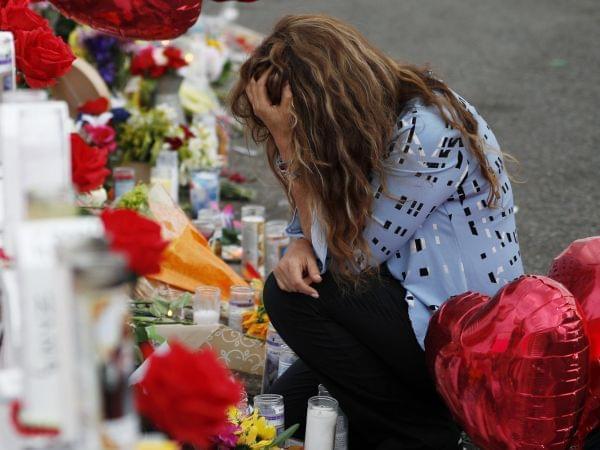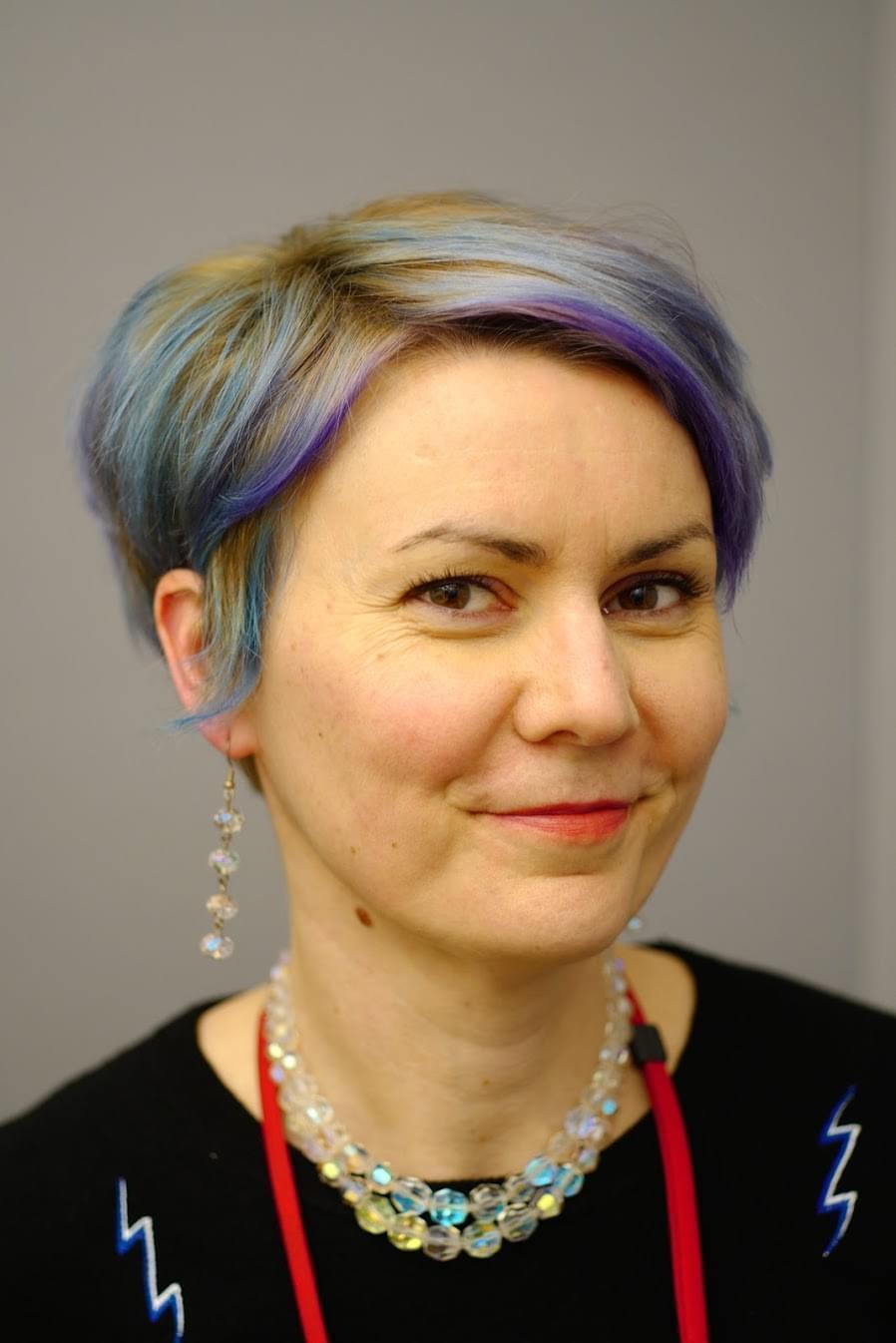‘This Is All Of Our Fight:’ Confronting White Nationalism In Illinois Schools

Gloria Garces kneels Tuesday in front of crosses at a makeshift memorial near the scene of a mass shooting at a shopping complex in El Paso, Texas. John Locher/AP
A progressive Jewish organization is hosting a workshop in Champaign on Thursday evening to help educators identify and counteract white nationalism in schools. It’s one of a series of events hosted by Bend the Arc:CU focused on increasing community safety.
Bend the Arc:CU chair, Diane Ore, said she hopes events like this will help keep young people from becoming radicalized online — and prevent mass shootings like the one that occurred this month in El Paso, Texas.
“If our kids are deterred from joining white supremacy or neo Nazi groups, at least there’s a chance they won’t be picking up guns to kill us in our houses of worship and our neighborhoods,” Ore said.
The workshop will be led by Nora Flanagan, a Chicago Public Schools teacher, and the co-author of Confronting White Nationalism In Schools — A Toolkit.
Illinois Public Media interviewed Flanagan ahead of the workshop.
This interview has been lightly edited and condensed for clarity.
LG: How did you get involved in combating white nationalist recruitment, and what motivates you to do this work?

Nora Flanagan is the co-author of Confronting White Nationalism In Schools -- A Toolkit
NF: From a very young age, I saw white nationalist recruitment efforts in the neighborhood where I grew up — the Beverly, Morgan Park neighborhood. And when I saw that, and not only saw the recruitment efforts, but saw how little people seemed bothered by it, that really galvanized this as an issue for me. And then I became a teacher. And I carried that experience with me into my teaching, historically, pretty quietly, because white nationalism is a strange thing to be an expert about. However, over the last few years, as incidents of white nationalist recruitment, especially focusing on young people, have increased significantly, it was time not to be quiet about it anymore. And I was talking to a couple of other educators at an event about how we felt there just wasn't a resource about this. And then we decided to write one.
LG: How can teachers identify white national radicalization that's happening in schools?
NF: There are a lot of things to look and listen for. But schools, teachers, administrators, parents don't often know what they need to be looking for and listening for. So that was one of the reasons we put the toolkit together — to let teachers know that when a student invokes white nationalist ideology in a research paper, when they are looking to that as source material, or when a student uses an avatar for an online learning platform that we know has affiliation with white nationalism, this is the time to have a conversation. This is the time to gather resources and respond as a school community.
LG: Once a teacher identifies something like that going on in the classroom, white nationalist ideology manifesting itself, what are the next steps that they can take
NF: That’s where a lack of resources has created a lot of problems. In my experience, I have seen schools either overreact or underreact. When they overreact, they treat it as a discipline problem. And they want to take a stand, which is admirable, and they respond as harshly as possible with disciplinary measures. That often backfires. You can make a political martyr out of a student by suspending him or her. You can drive them further into that movement by punishing them. Or, schools will underreact, minimize the incident, say it’s a one time thing, an isolated incident, and that this isn't who we are. And that not only doesn't address the problem, but it communicates to the rest of the school community that this isn't a concern. And it should be. When we designed the toolkit, we brainstormed possible responses and approaches for every stakeholder in the school community. We always start with students; what can students do? How can they approach staff members to voice their concerns? What can teachers do? How can administrators thoughtfully respond? We included parents as a category and then community members at large.
LG: Is it the responsibility, or should it be the responsibility of teachers to confront white nationalism or other forms of radicalization happening to the students inside their classrooms?
NF: My students are my kids and I care about them. I can't get comfortable with a response of: that's not my job. Because my students’ wellness, my students’ sense of safety — that is part of my job. I think often people feel hopeless about this issue. They feel that it is beyond their reach. They feel that it is too big or too nebulous or too intimidating. This is all of our fight. We all need to be involved in this conversation because we can all contribute.
The Bend the Arc:CU workshop with Flanagan is open to the public, but reservations are required. To learn more about the event, visit: https://cu.bendthearc.us/confronting_white_nationalism_in_the_schools_a_toolkit
Follow Lee Gaines on Twitter: @LeeVGaines
Links
- State Officials Will Pursue Death Penalty Against Suspected El Paso Gunman
- Small Group Of White Supremacists Rally In D.C. Amid Mass Counterprotests
- Trump Calls Out KKK, White Supremacists 48 Hours After Charlottesville: ‘Racism Is Evil’
- Ohio Man Charged With Murder In Fatal Car Attack On Anti-White Nationalist March
